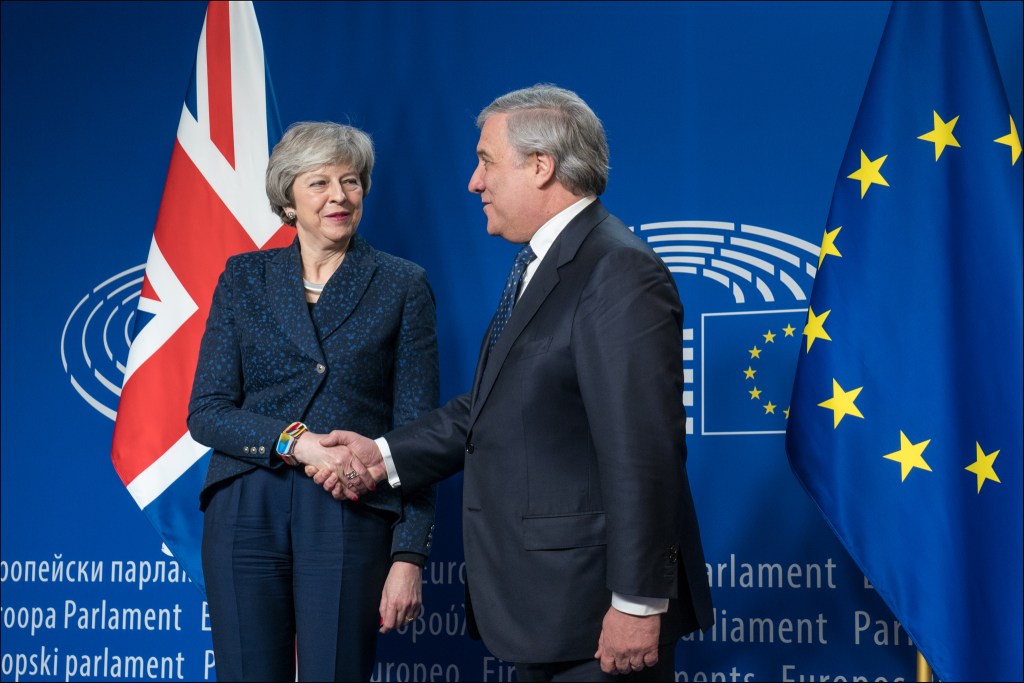The British Prime Minister has called on the EU to help her sell her deal at home. UCL’s Clement Leroy argues that it is not even in the EU’s interest to offer concessions: only a drastic change of the deal itself would convince enough MPs, and this would cost the EU its unity.
As Theresa May sought reassurances from the EU to sell the Brexit deal, EU leaders insisted that the text will not be renegotiated. Jean-Claude Juncker has sent a stronger warning that there is “no room whatsoever” to tweak the agreement. But is there anything that the EU can offer to help the prime minister with getting the deal through parliament?
EU officials and media were dismayed by Mrs May’s decision to delay the meaningful vote. Many see it as a dangerous gamble, and France has already said a no deal is more likely amid the confusion.
Throughout the negotiations the EU has been clear that its interest was in Brexit occurring in an orderly fashion and for the present deal to pass through the British parliament. However, EU leaders know that their support is a double-edged sword for Theresa May: if they are too supportive of the deal, hard Brexiteers will surely depict the text as being imposed by the EU — a British capitulation — and vote against it.
Escaping this winner-loser rhetoric has been the main failure of the EU throughout the negotiations, as the message that Brexit was always going to be anything other than a lose-lose situation never seemed to cross the Channel.
Theresa May and Michael Gove have tried to tackle this issue by explaining that the backstop, for instance, was as uncomfortable for Britain as for the EU because it will let a country enjoy the benefits of the single market without respecting the four freedoms. But few MPs have been convinced by this argument, as the overall feeling is that the EU has not budged on any of its main red lines in the past two years.
The EU seems to be a victim of its own success on the Brexit negotiations. Only what could be perceived as a clear EU defeat, such as giving up a red line on the Irish backstop, would convince some MPs to change their mind, and even so the arithmetic in Westminster would still look complicated.
The EU could renegotiate the deal and stage such a “defeat” but has no interest in doing so. The EU will not risk its own unity over Brexit, and will thus stick with Ireland and find it impossible to offer concessions on a legal unlimited Irish backstop.
The EU Commission will also do everything to avoid new delays and uncertainties. Emmanuel Macron’s blunt warning to the UK over fishing and the Spanish prime minister’s threat to “veto” Brexit over Gibraltar demonstrated that the present EU stance has been reached with difficult and long compromises. On top of that EU leaders are already having to deal with domestic problems such as the Gilet Jaunes protests in France, Angela Merkel stepping down and Italy’s budget drama. Any concessions made to Britain will be arms for the nationalist voices and increase divisions in their own countries, which they cannot afford at the moment.
For all these reasons, the prime minister will hardly gain anything from taking the negotiations back to the EU except for delaying the inevitable. The EU knows that there is no majority for any Brexit option at the moment in the Britain. Offering concessions would threaten the block’s unity, alienate Ireland and EU domestic opinions without the certainty that it would deliver a positive vote in the Commons. It is not difficult to see that the EU is likely to apply Mrs May’s own strategy: wait until breaking point.
Clement Leroy is a Research Associate at the UCL European Institute and UCL Public Policy (OVPR).
This article was originally published on The Times and is reposted with permission.
Note: The views expressed in this post are those of the author, and not of the UCL European Institute, nor of UCL.
Photo by European Parliament at Flickr.





Leave a comment